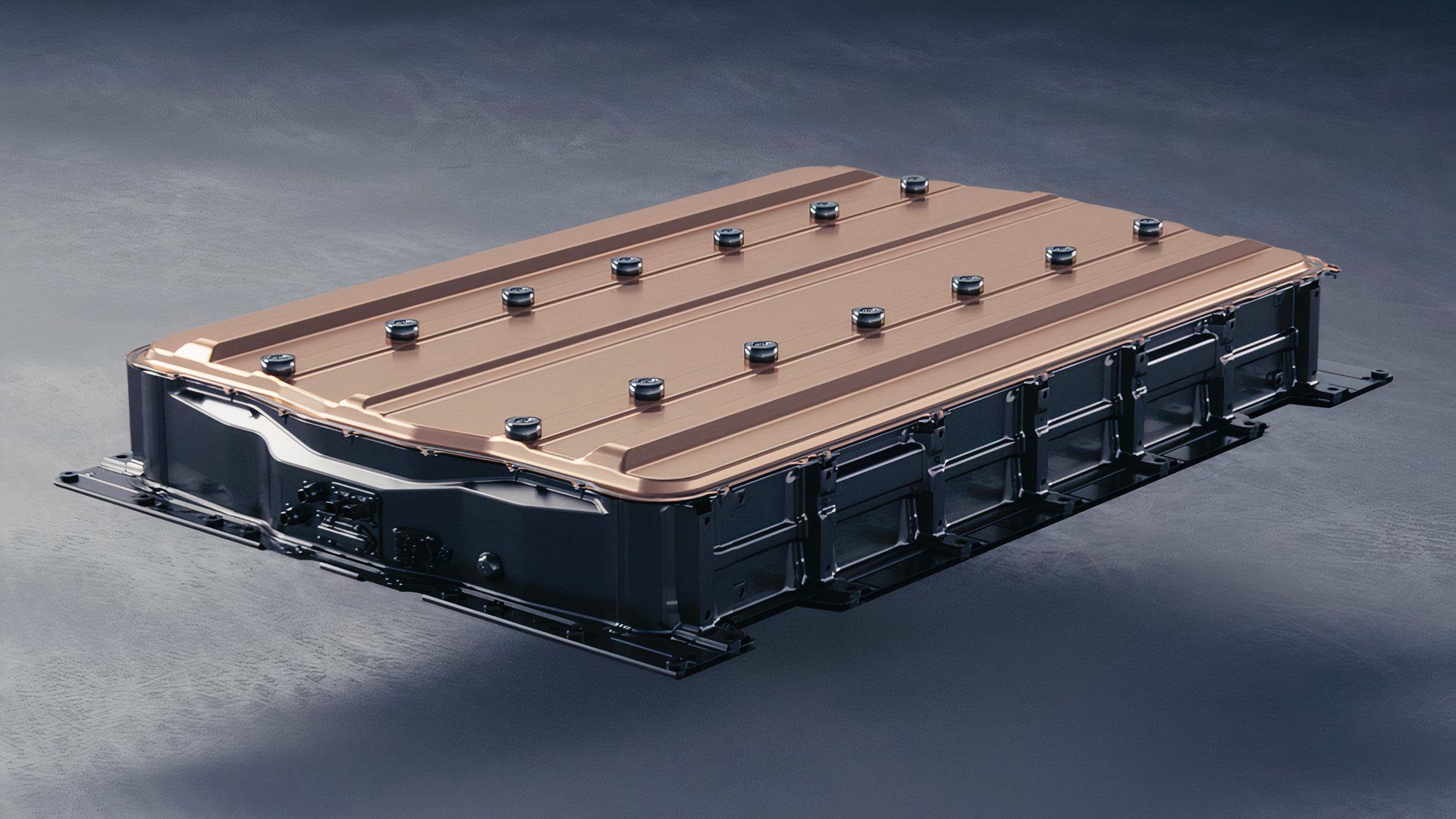It isn’t often that a new development could completely revolutionize an emerging segment in the automotive industry, but multiple battery production companies are working on tech that will do just that. Among those is Samsung, who stole the show at the SNE Battery Day expo that took place in South Korea earlier this year. There, Samsung announced a solid-state battery with a range exceeding 600 miles and an 80 percent charging time in under 10 minutes.
Currently, the vast majority of electric vehicles are powered by lithium-ion batteries that can take hours upon hours to charge, depending on the level of charger used. Using a standard three-prong outlet found in homes provides the longest charge times, while DC fast charging stations deliver the fastest charge speed. With solid-state batteries, that could all change. Samsung isn’t the only company hard at work bringing about the next generation of battery technology. Other companies and automakers, including Toyota and Mercedes, are getting in on the action as well.
In order to give you the most up-to-date and accurate information possible, the data used to compile this article was sourced from Toyota, Mercedes, Nio, and other authoritative sources, including Interesting Engineering.

Related
Why Solid State Batteries Are Going To Revolutionize The EV Industry
In the next decade, solid-state batteries are going to make everyone who doubted EVs takeover hide their faces
Samsung Plans To Deliver A 600-Mile Solid-State Battery By 2027
At the SNE Battery Day 2024 expo in South Korea, Samsung also unveiled that its pilot line to mass-produce fully solid-state batteries was fully operational. The first batteries produced went off to electric vehicle manufacturers, and Samsung stated they’ve received positive feedback. Samsung’s solid-state batteries are proven to achieve a 600-mile range and charging times as short as nine minutes.
While the solid-state batteries are still undergoing testing, Samsung plans to have their product headed into mass production and powering mass-produced electric vehicles. Like any new technology, however, solid-state batteries have high production costs which will limit the number of vehicles they power. More than likely, for the first few years at least, solid-state batteries will underpin the “super premium” segment that will ultimately be defined by the 600-mile range.
Samsung isn’t putting all of its batteries in one basket, though. Samsung is also working on developing more affordable lithium batteries. In a statement, Samsung claimed:
We will not only match the price in the popular and entry-level segments, but also mass-produce products that can be rapidly charged in 9 minutes by 2026.
Samsung Isn’t the Only One Developing Solid-State Batteries
Samsung isn’t the only battery maker investing in the research and development of solid-state batteries. CATL, a Chinese company that currently holds more than a third of the lithium-ion battery market, is working on their own solid-state batteries. CATL arrived on the scene less than 15 years ago, so achieving such a large market share in that short amount of time is impressive on its own. With lithium-ion battery prices falling, however, CATL has been forced to close lithium mines.
BYD, a Chinese manufacturing company, is a major player in both the automotive and battery industries. BYD Automobile and BYD Electronics produce electric vehicles and various other electronics, including rechargeable batteries. They account for over 15 percent of the battery market, meaning BYD and CATL account for more than half of the entire battery market share.
Toyota and Mercedes Are Testing Solid-State Batteries
Less than a month ago, Mercedes and Factorial unveiled a solid-state battery that can extend their electric car’s range by up to 80 percent compared to the current lithium-ion batteries powering vehicles today. The new solid-state batteries are developed on Factorial’s in-house platform. According to Factorial, the battery’s system remains stable at temperatures of nearly 200 degrees, which can further reduce the vehicle’s weight and price. Factorial and Mercedes claim their solid-state battery has a total driving range exceeding 600 miles, reduces battery weight by 40 percent, and a 33 percent reduction in size.
In keeping with its reputation as a trendsetter, Toyota aims to have solid-state batteries in mass production by 2027. The Japanese automaker recently received a green light from the government to move forward with the development and production of next-gen batteries in the country. In 2023, Toyota announced it expects high-performance batteries to hit the market in 2028, with lower tier batteries arriving as early as 2026. Nissan is also working on a solid-state battery for its new GT-R.

Related
10 Ways Solid State Batteries Will Change EVs Forever
The main benefit of solid-state batteries compared to conventional lithium-ion is they have significantly more energy density.
How Lithium-Ion Batteries Work
Lithium-ion batteries have five main parts:
- Anode
- Cathode
- Separator
- Electrolyte
- Current Collectors
The anode is the negative side of the battery and is typically made of graphite, while the cathode is the positive side and is made of lithium and other metals, like cobalt and nickel. The cathode ultimately determines a battery’s range, performance, and longevity. When the battery receives a current, the lithium ions move from the cathode to the anode. When the battery is discharging, the lithium ions move from the anode to the cathode. This process creates a current that’s gathered by the collectors which sends power to the electric vehicle.

Add TopSpeed to your Google News feed.
Lithium-Ion Battery Performance Degrades Over Time
By now, it’s no secret that lithium-ion batteries degrade over time, and that’s doubly true for EV batteries. On average, EV batteries lose around two to three percent of their total capacity, leading to reduced range and performance as the battery ages. Batteries in warmer climates will degrade faster as they reach higher temperatures.
According to the Department of Energy, an EV battery in moderate climates will last around 12 to 15 years, while those in more extreme climates can expect anywhere from eight to 12 years out of their battery. On the bright side, government regulations require that manufacturers warranty their EV batteries for at least eight years or 100,000 miles.
Lithium-ion Batteries Are Used In Most Electric Cars
Lithium-ion batteries are the power source of choice for electric vehicles for a multitude of reasons. They have a high energy density, which means they can store more energy in a small physical size compared to other battery types. They also have fast charging capability and hold their charge well, even when not in use for extended periods of time. Comparatively, lithium-ion batteries can also handle thousands of charge and discharge cycles without losing all of their capacity.
Lithium-ion Batteries Are Cheap To Produce
The price of lithium has fallen by more than 75 percent since 2014, and is now at an all-time low. The price of lithium is expected to fall even further by the end of the year, but with solid-state batteries heading to mass production in the next five years, the future may not even be in lithium-ion batteries. On its current course, demand for lithium-ion batteries is expected to increase by 900 percent by 2040.
2:34
Related
Explained: Solid-state Batteries vs Lithium-ion Batteries
The electrifying battle between solid-state batteries and lithium-ion batteries sparks innovation and potential breakthroughs in energy storage.
How Solid-State Batteries Work
The benefits of solid-state batteries extend beyond range and charging speed. Solid-state batteries can also increase the safety of electric vehicles by changing liquid to solid. The battery’s weight is reduced and takes us less space, which further decreases the weight of the electric vehicle, which can increase the overall single-charge range. Once the solid-state batteries see their production cost fall, the price of electric vehicles can drop as well. In the end, we’ll likely see more affordable electric vehicles with longer ranges.
Solid-State Batteries Have A Longer Lifespan
Lithium-ion battery performance degrades over time, but solid-state batteries could help solve that problem. Samsung’s 20-year battery isn’t an exaggeration. The Harvard School of Engineering and Applied Sciences charged and discharged a solid-state battery 6,000 times. If you were to charge your electric car once a day, the solid-state battery would last 16 years.
Some of the industry’s top battery makers, including CATL, have also announced their batteries would have 20-year lifespans as well. To put it simply, 20-year batteries are quickly becoming a silently agreed upon industry standard of the near future by major battery makers.
Solid-State Batteries Will Have Longer Ranges, Faster Charging
One of the major hurdles to EV adoption is range anxiety, or the worry that you won’t be able to get to the next charging station before your electric car runs out of energy. While the world certainly needs better-charging infrastructure, longer ranges, like the 600 miles or more provided by solid-state batteries, can help alleviate range anxiety. Solid-state batteries also have faster charging speeds. Where before it took 40 minutes to reach 80 percent capacity in a lithium-ion battery, it can now take under 10 minutes with a solid-state battery.
Some Automakers Are Using Solid-State Batteries Now
The reality of solid-state batteries powering electric vehicles isn’t as far-fetched as it seems, especially once you take into account one automaker is putting them to the test to get real-world results. Back in January 2021, Nio began testing a massive 150 kWh semi-solid-state battery in the ET7 electric sedan. Next, Nio founder and CEO Li put the battery to the test with an endurance challenge. During a streamed event that lasted 14 hours, the ET7 managed to cover 650 miles on a single charge.
















